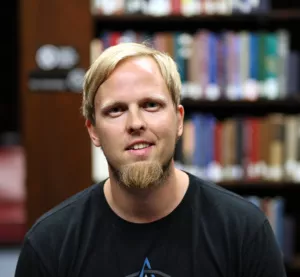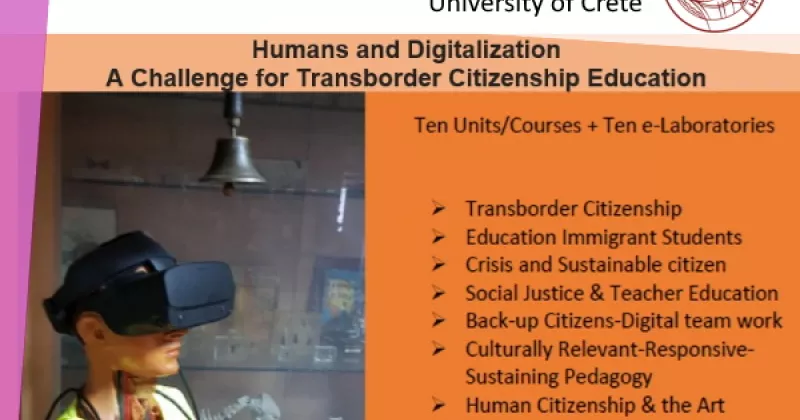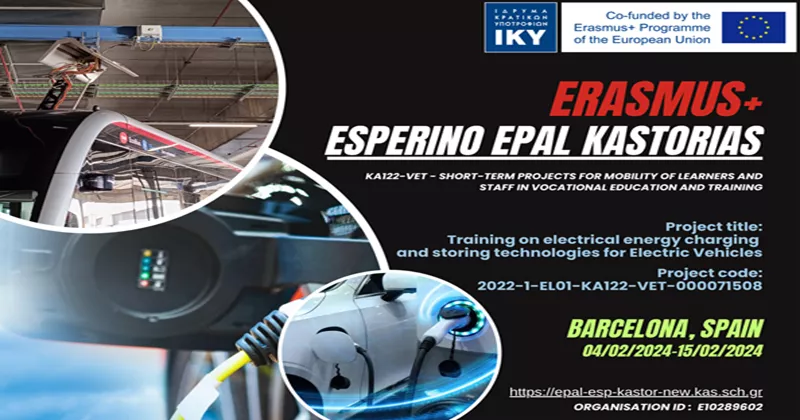Jonas Ahlskog: The return of non-formal education in Nordic social discourse
Non-formal education should be a self-critical process; a form of radically questioning what we can truly consider meaningful and important in our lives.
Are there any reasons today to argue for the return of non-formal education? Yes, so believes a broad front of debaters and intellectuals around the Nordic countries. If only a few decades ago non-formal education was considered dusty and old-fashioned, now countless essays, debate texts and books testify to the fact that the concept of non-formal education has regained a positive connotation in Nordic social discourse. The result is that the idea of non-formal education has been reintroduced and harnessed to counter everything from economisation and opinion corridors in society to authoritarian populism and ecological depletion. In this context, influential Nordic debaters have therefore invoked the free search for knowledge of non-formal education as a crucial tool for defending democracy in a contemporary setting characterised by phenomena such as fact resistance and polarisation.
IN SWEDEN: NON-FORMAL EDUCATION IN PRIME TIME
The debate on non-formal education has been most intense in Sweden. Svenska Dagbladet lists a total of 45 current articles under the category of "non-formal education debate", and the discussion is not limited to daily press alone: questions about the aptness and role of non-formal education are addressed everywhere from think tank seminars to celebrities’ sofas on prime time television. In Sweden, as is not always the case in our western neighbour, the debate on non-formal education has also been fuelled by the kind of disaccord that is the lifeblood of any critical and constructive social debate. Participants are far from agreeing on what non-formal education should mean today, but there is a broad consensus that the ongoing debate targets crucial social issues of our time. Under the umbrella of the non-formal education debate, therefore, there is room for both the rejection of this ideal by author Aase Berg, as a bourgeois, patriarchal code of memorised knowledge, and Sverker Sörlin’s praise of non-formal education as the invaluable treasure of civil society.

What are the reasons for the great return of the concept of non-formal education in Sweden? In part, the interest in this topic can be explained by the fact that education and school have long been political battle fields, and the question of non-formal education is easy to link to discussions on Sweden's unstable PISA results. However, the connection with the school debate does not yield the full answer. Because in recent years, the debate has evolved to encompass problems beyond the reform of the school system, namely the role of non-formal education in the survival of democratic society. This turn in the debate on non-formal education directly responds to the rapidly increasing political, social and economic polarisation and the related rise in authoritarian populism - a large-scale process that has hit not only Sweden but the whole western world in the wake of the 2008 financial crisis.
MEANWHILE, IN FINLAND: INTERESTING BOOKS ABOUT NON-FORMAL EDUCATION, BUT WHERE IS THE WIDER SOCIAL DISCOURSE?
Is there also a debate on non-formal education in Finland? If you mean a broad debate such as in Sweden, the answer is “no”. However, there are clear indications that one is about to begin.
The signals include, on the one hand, an increasing field-specific discussion on the importance of liberal adult education for democracy, as demonstrated by the book Vapaa sivistystyö: eilen, tänään ja huomenna (2019), which delivers a meta-analysis and vision of researchers and actors in the field regarding the role of liberal adult education in the promotion of democracy. On the other hand, there is also an increasing general discussion on the societal importance of non-formal education: for example, Sivistyksen puolustus (2018), by Sari Kivistö and Sami Pihlström, on the democratic endeavours of universities, and the well-noted book on non-formal education and sustainable development, Sivistys vaurautena (2020), by Maria Joutsenvirta and Arto O. Salonen. In order to foster the debate in Finland, Sitra has set up the Bildung+ project and, in order to start a discussion on the importance of non-formal education in Swedish, this spring a project led by the undersigned will be started up with the association Svenska folkskolans vänner rf.
BUT WHAT SHOULD WE TALK ABOUT WHEN WE TALK ABOUT NON-FORMAL EDUCATION?
If there is to be a debate on non-formal education, what should it be about? I think that an important distinction must be made here: the discussion should not only be about non-formal education in order to counter the so-called “wicked problems” of our time. The problem is that the concept of non-formal education is in danger of only being used as a bat in social debate: its ideal is stipulated as promoting democracy and progressive climate policy - anyone who deviates from these ideals is by definition uneducated. This is a way of discussing “non-formal education” where we assume that we already have the answers to the great questions of our time. The only problem is how to get dissidents to believe in us, and our references to “non-formal education” often rather increase than decrease the distance between “us” and “them”.
Instead of focusing solely on the ideal of non-formal education in 2021, we should also discuss it as a self-critical process; a form of radically questioning what we can truly and sincerely consider meaningful and important in our lives. Through this radical, personal question, we can then proceed to societal questions about how to promote democracy and save the climate.

But we need other words to affirm the fundamental existential dimension of the ideal of non-formal education: What are we now and what do we want to be? The most important ingredient for any discussion on non-formal education is to bring this existential question to life, in both ourselves and in others, in order to come together in answering such an open question. At the same time, this shows us that discussions on this topic can present us with frightening challenges: Are we really prepared to discuss openly with those of a different opinion and dare we question our standard approaches? If the answer is “yes”, discussions about non-formal education have the potential for real change.
***
The text was originally published in Swedish in the blog of the Freedom and Responsibility of Liberal Adult Education programme on 26th of January 2021. EPALE Finland is responsible for the translation of the text.

Jonas Ahlskog is a researcher in philosophy and history at Åbo Akademi University and an expert member of Svenska folkskolans vänner rf. He was the director of Folkets Bildningsförbund rf (2010-2020), an association in the field of liberal adult education that organises discussion events, philosophy cafés and seminars across Swedish-speaking Finland. Jonas is interested in non-formal education because it makes us think about what we are and what we want to be. He is particularly interested in how liberal adult education can change our understanding of ourselves and therefore society as a whole. Work and leisure often mesh in his life, and he spends most of his free time reading and following the media on topics such as philosophy, history, culture, literature, and societal discussion.
Images: Pixbay, Eric Johnson-Debaufre
The SVV – Freedom and Responsibility of Liberal Adult Education programme will publishing a blog by the name Sivistystori in 2021. In the blog, researchers and experts of liberal adult education and SVV’s partners with an interest in general knowledge and education write about educational work and the importance of general knowledge and education in society. The blog will be published on SVV’s website approximately once a week.





